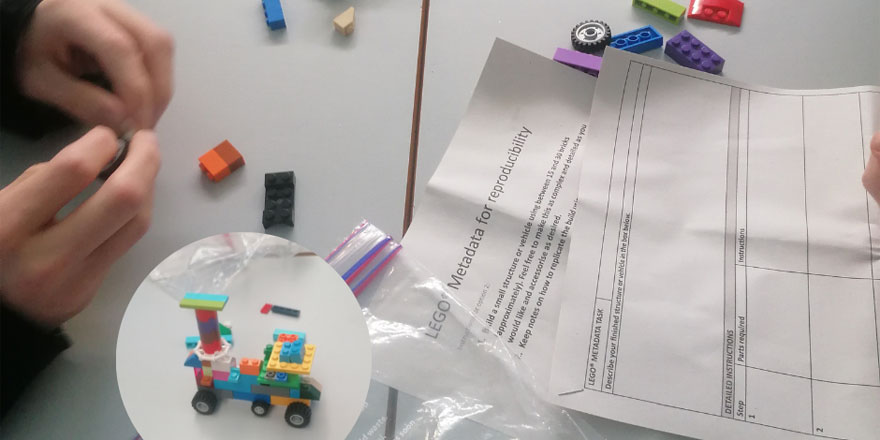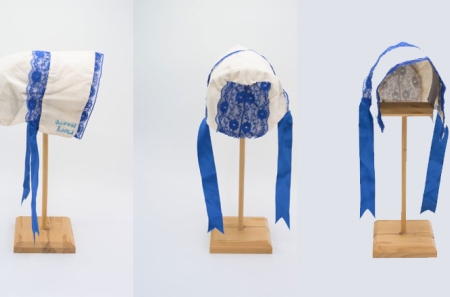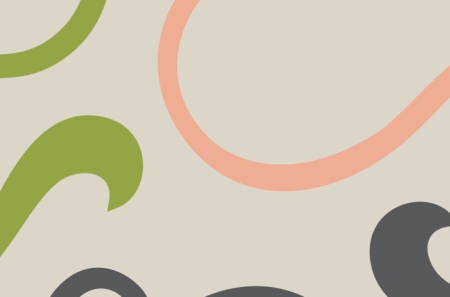
DRI Engagement: Working With Schools on Research Projects
13 February 2024The Digital Repository's Training and Engagement Manager Lorraine Marrey writes about delivering a workshop to secondary school students on using the DRI collections for a history project.
In this blog, we asked our Training and Engagement Manager Lorraine Marrey to talk about a workshop she ran for a secondary school’s history class.
The Digital Repository of Ireland (DRI) has a wealth of open access humanities, cultural heritage, and social sciences collections available for research purposes, or for general browsing. It’s part of the Training and Engagement Manager’s role to promote these collections as well as the digital preservation work we do at DRI to researchers, students, community groups, and the general public.
While we regularly deliver talks and workshops to the research community in Ireland, as well as those engaged in community archive work, I wanted to focus some of our engagement activities towards students before they enter higher education.
From my own previous experience as a school librarian in a secondary school, I was acutely aware that often the first opportunity that many students get to undertake a longer piece of research work is the Leaving Certificate History Research Study Report (RSR). This project can be daunting for a first time history researcher, and engaging with appropriate source material can be challenging.
With this in mind, I have developed a number of talks and workshops that can be delivered within the classroom setting to complement a history teacher’s preparatory work for the history research project, and give students some hands-on experience accessing and engaging with suitable online content for their work.
In January 2024, St. Benildus College asked for a workshop for their 5th Year history students who were in the early stages of planning their research projects and were still exploring topics and resources.
We began the session with learning outcomes – what the students should be able to achieve by the end of the workshop:
- Students know what DRI is and what it does.
- Students will learn about open access to DRI’s digital collections which can contain primary source material
- Students will get a showcase of some of the DRI collections that may be of benefit to them with their research project
- Students will learn how to use the Repository’s search function/ browse, and to develop a search strategy
- Students will learn how to access the Repository’s digital objects, including all associated assets and metadata
- Students will learn how to cite the relevant resource.
It’s important to allow adequate time for the students to search the collections themselves, and ask questions – what words and phrases did I use to search? Are these results suitable for my project? Can I refine my search results to get more relevant material? Can I reuse this material? How can I cite it?
The history RSR students are free to choose a topic of interest to them (usually in consultation with their teacher), so a wide range of topics can be looked at. With this in mind some of the collections which we looked through as a group were 3D Models from the Hunt Museum Collection, Kilkenny Traditional Shopfront Signage Project 2021 (Dee Maher Ring & Kilkenny County Council), Records of Dáil Éireann deposited by National Archives and Houses of the Oireachtas, Papers of Michael Davitt deposited by Trinity College Dublin, and Documents on Irish Foreign Policy deposited by Royal Irish Academy.
To close out the morning and allow the students to make those all important connections between communication and information, we did some group work back in the classroom that didn’t involve PCs or devices.
All students participated in a version of LEGO® Metadata for Reproducibility game. I used this game as a tool to illustrate the research process in terms of information searching, documenting, and communicating. All students enjoyed the participation, working as a group, and of course playing with Lego!



